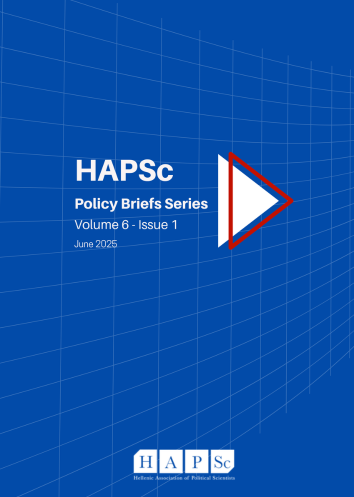Culture and Resilience in Dialogue: Achieving the SDGs through Cultural Diversity - A Case Study of El Sistema Greece

Abstract
El Sistema Greece (ESG) is a music education initiative aimed at fostering social inclusion by providing access to music education for all youth, including children from marginalized communities. Inspired by Venezuela’s original El Sistema, ESG was established in Greece in 2016 with the mission of promoting educational and social inclusion through musical engagement. El Sistema Greece Youth Choir, as the program’s primary vocal ensemble, plays a central role in creating a supportive and safe environment for the personal and artistic development of its members. In close collaboration with the El Sistema Greece Youth Orchestra - founded in November 2017 and offering music training to individuals aged 10 to 26 - ESG extends its reach through joint performances and partnerships with other institutions. These collaborations aim to broaden access to structured music education and cultivate creative expression, while simultaneously promoting social equity. This research, conducted between November 2024 and January 2025, adopts a case study approach to examine the intercultural music program of ESG. The primary research questions investigate the program’s impact on participants’ social inclusion, skills development, and self-esteem, and further explore how music can contribute to sustainability and social cohesion in multicultural settings. The study analyzes ESG’s alignment with seven United Nations sustainable development goals (SDGs): Good health and well-being (SDG 3), quality education (SDG 4.7), gender equality (SDG 5), reduced inequalities (SDG 10.2), safeguarding of cultural heritage (SDG 11.4), peace, justice and strong institutions (SDG 16) and partnerships for the goals (SDG 17).
Article Details
- How to Cite
-
Vakalopoulou, E. (2025). Culture and Resilience in Dialogue: Achieving the SDGs through Cultural Diversity - A Case Study of El Sistema Greece. HAPSc Policy Briefs Series, 6(1), 17–28. https://doi.org/10.12681/hapscpbs.43149
- Section
- Articles

This work is licensed under a Creative Commons Attribution 4.0 International License.
Authors retain copyright and grant the journal right of first publication with the work simultaneously licensed under a Creative Commons Attribution License that allows others to share the work with an acknowledgement of the work's authorship and initial publication in this journal.

